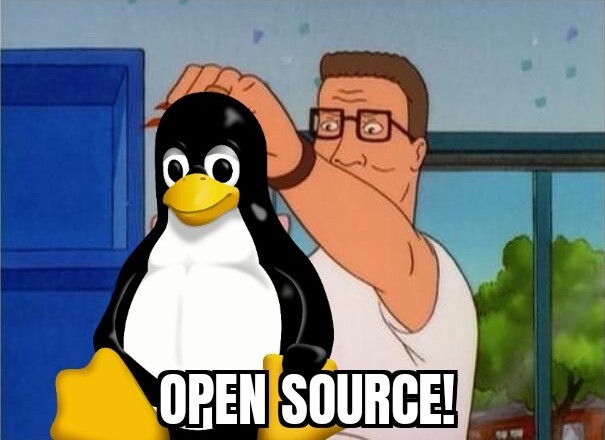- 0 Posts
- 19 Comments
I can’t wait to hear about the GNU Is Not UNIX Hurd of Hird of Hurd of Hird of Hurd of Hird of Hurd of Hird of Hurd of Hird of Hurd of Hird of Hurd of Hird of Hurd of Hird of Hurd of Hird of Hurd of Hird of Hurd of Hird of Hurd of Hird of Hurd of Hird of Hurd of Hird of Hurd of Hird of Hurd of Hird of Hurd of Hird of Hurd of Hird of Hurd of Hird of Hurd of Hird of Hurd of Hird of Hurd of Hird of Hurd of Hird of Hurd of Hird of Hurd of Hird of Hurd of Hird of Hurd of Hird of Hurd of Hird of
Glory to you… ^AND ^YOUR ^PASSWORD…

 41·2 years ago
41·2 years agoNACHWUCHS

 21·2 years ago
21·2 years agoA self-closening null tag. Perfection.

 6·2 years ago
6·2 years agoI liked how Star Trek: Discovery had a snippet of C code with a reference to Windows NT. I wonder if we’ll still be on x86 in the 23rd century.
It’s a reference to a copypasta.
I’d just like to interject for a moment. What you’re referring to as Linux, is in fact, GNU/Linux, or as I’ve recently taken to calling it, GNU plus Linux. Linux is not an operating system unto itself, but rather another free component of a fully functioning GNU system made useful by the GNU corelibs, shell utilities and vital system components comprising a full OS as defined by POSIX. Many computer users run a modified version of the GNU system every day, without realizing it. Through a peculiar turn of events, the version of GNU which is widely used today is often called “Linux,” and many of its users are not aware that it is basically the GNU system, developed by the GNU Project. There really is a Linux, and these people are using it, but it is just a part of the system they use.
Linux is the kernel: the program in the system that allocates the machine’s resources to the other programs that you run. The kernel is an essential part of an operating system, but useless by itself; it can only function in the context of a complete operating system. Linux is normally used in combination with the GNU operating system: the whole system is basically GNU with Linux added, or GNU/Linux. All the so-called “Linux” distributions are really distributions of GNU/Linux.
Red Hat 6.1, that was my first Linux distro.

 3·2 years ago
3·2 years agoI’ve been designing CPUs and writing machine code and assembly for the last month and it’s been a blast.

 29·3 years ago
29·3 years agoI wonder what they changed “retroactively aborted” to
I have to roll my eyes at the idiosyncratic ones like “ithyphallic metal”, and I place less importance on theme-based ones like Viking Metal, but I think most genres are pretty varied like that if you get into them enough.
Never used a Turing machine, but I have a project that generates NFAs and converts them to DFAs so they run faster.

 1·3 years ago
1·3 years agoThanks, I appreciate that. My cert is expiring in a few weeks, maybe I’ll take another crack at it.

 1·3 years ago
1·3 years agoHonestly I’ve sunk so much time into this that I never want to think about it again if I can just run a shell script once every 3 months haha. I never understood the process too well.

 3·3 years ago
3·3 years agoThat’s the easy part, the hard part was getting the acme-dns authentication to work since you can’t use the regular automated update with a wildcard certificate.

 7·3 years ago
7·3 years agoI just straight up gave up trying to automate renewing my wildcard certificate from Letsencrypt after who knows how many weekends. Typing a single command won’t kill me lol
Every time that last part happens I have to check the proper spelling of Berenstain. I’ve had some that really seem like they should have been impossible lol







You win a free trip to the Hague